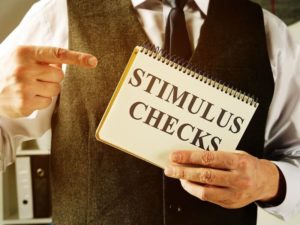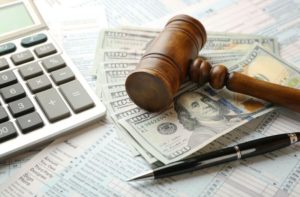Content Reviewed by: Dave Gormley •
April.7.2020 Vertified Content
Apr 7, 2020 | Read Time: 4 minutes
As a bankruptcy lawyer in Southern Maryland, I know people will be asking me what to do with their government stimulus check. To make sure I was ready to answer this question, I figured I would look at what advice financial experts are giving.
The advice I read seemed to be the same advice that was given when the last stimulus checks were sent out in 2009: pay down your debt and save for retirement.
But things are changing fast, and this isn’t 2009. Back in March, I wrote a post about How to Budget for Coronavirus. At that time, I was focusing on people who were having their hours cut on their part-time job. Now, we are looking at the possibility of record unemployment.
This is the time for some emergency budgeting. If things keep getting worse, putting that stimulus money towards your debt or or retirement could end up being a bad idea.
Continue to hope for the best, but plan for the worse. If the best happens, you will still have that money to pay down your debt or put in a retirement account. Until then, this money is your emergency fund.
How Much Will I Get?
The first thing to do is figure out how to figure out how much your stimulus check will be. There are a number of online calculators that will help you. Here are two you might want to try:
Turbo Tax Stimulus Calculator;
Grow Acorns Calculator
When Will I Get It?
Next, you need to figure out how soon you might get this money. This means doing a little research. If you have received tax refunds by direct deposit from the IRS, you could be getting this money by the end of April. But you should check the latest reports to see if that will really happen.
If you haven’t received a tax refund in the last few years, you may have to wait longer for the money to come by check. The Treasury Department is working on a system where you can give them your bank account routing information so you can get this money by direct deposit. But be careful—there have already been reports of phishing emails claiming to be the IRS.
What Should You Spend It On?
Now that you have an idea of how much you can get and when you can get it, your next step is to figure out how to use the money. The right answer depends on your particular situation— it’s not the same for the person laid off by a restaurant, and the person who works for the Federal Government and has a bunch of sick leave and disability insurance.
However, my general advice is don’t use it unless you need it to feed your family. Think of this as your emergency fund. That may sound a bit extreme, but these are extreme times. Remember, we are planning for the worse case scenario. If you feel you are facing an emergency, try to think of what might come next before you use the money.
Even if you already have some savings, use it to replenish your savings. You need to be prepared for the possibility that you may be facing a cut in pay or layoff. If you are already laid off, you should still try to set the money aside. It may be what you need for those first couple of weeks when you get back to work. You don’t want to be in the situation where you can’t afford to get to work to earn that first paycheck.
If you are already behind, you may have to spend some of the money. Before you do, see our post on How to Budget for Coronavirus. These are not normal times—you can’t use your normal budgeting plans. If you are out of work, some creditors will have to wait. If they won’t work with you, you can come see me for a free bankruptcy consultation and read our post My COVID 19 Financial Problems: Is Bankruptcy the Answer?
Conclusion
If the best happens, you still have this money and you can pay down your debt or catch up on your credit cards payments. Better to end up with some late fees then to end up without money for groceries and a place to live. If you want to explore your bankruptcy options, or just want to review your emergency plan, give our office a call and schedule a consultation.





